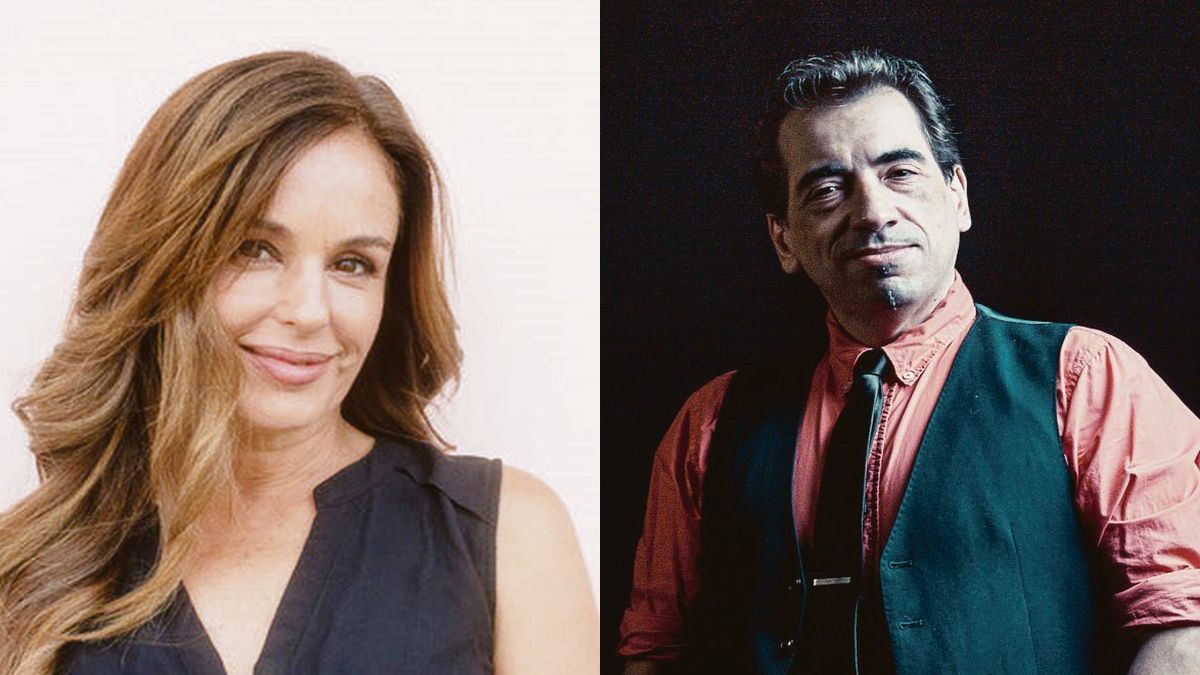There is probably no single answer to this phenomenon, but there is no doubt that there is a greater supply of national fantastic films than ever, to the point that in the last month there was almost one premiere per week, with titles such as “Welcome to Hell”, “Mete Afraid” and “El Desarmadero””, while by the end of the year there are several important titles and a long dozen for 2023. Along with Fasce, this newspaper also invited other producers fully involved in the gender. Nicanor Loreti, fresh from the Biarritz festival where his latest film, “Punto Rojo”, won the jury prize, has directed “Diablo” and the suburban superhero comedy “Kryptonita”. “The economic situation doesn’t help,” he said. More an expert in gore and cult cinema than a director of horror films, Loreti believes that the success of Argentine films in specialized festivals benefits international sales and makes them profitable beyond the local box office, and thus he managed to make a film that mixes nuclear warhead thefts with the history of Racing is being sold to digital platforms.
platforms
“The platforms do not participate in the production, but rather they buy finished products and that is why they are attentive to how the public receives them at the festivals,” adds Loreti. “Sometimes even the sales are not only for the platforms but also for theatrical releases; I had that luck with ‘Diablo’, which reached Spanish cinemas, where no one saw it, although it garnered very good reviews”. Loreti is currently finishing two films: “Búfalo”, the biopic of the kickboxing fighter played by Maravilla Martínez, and “María” is almost ready, “my first film that I could call a horror police movie, with Sofía Gala, doing a homage to the robot from ‘Metropolis’”.
For the producer Roxana Ramos, not only are the platforms essential, but also all the markets and prizes for production, such as Ventana Sur, where she discovered a project by Santiago Fernández Calvete that adapted the story of Leo Tolstoy “La familia Vurdalak” -now titled “Blood Vurdalak”-, which had already been filmed by Mario Bava in “I tre volti della paura”, also known as “Black Sabath” starring Boris Karloff.
“This is the first Latin American adaptation of Tolstoy’s tale,” Ramos says proudly. “And also the first co-production between Argentina and Singapore, Malaysia and Canada. It is that with the script and a teaser filmed at the last minute we went to a market in Korea, and despite the fact that all the projects had the scope of current Korean cinema, it took first place. We had post-production in one of the biggest studios in Asia, and the only thing that drove us crazy was arranging to get the crude and bring the masters through one of the strictest quarantines on the planet.”
“Blood Vurdalak” will have its avant premiere this October 31, Halloween, and will be released in theaters across the country on November 3 “in many more theaters in all circuits than they gave us when I produced auteur films or some comedy. I had been producing a lot until I discovered horror, and I realized that it is more playful, revolutionary and universal than the supposedly more serious auteur cinema”.
Ramos has more genre projects, such as “The Cat’s Scream”, which will be directed by Jorge Caterbona based on a story by Guillermo Martínez, although before that she will be immersed in a more ambitious production, “Where Evil Lurks”, by Damián Rugna, which a few years ago years surprised the public with his formidable “Terrified”, whose scenes earned him the interest of the main global horror platform, Shudder, which according to Ramos requires a certain level of quality, for example “be careful with production levels, which It took us on a 9-week shoot that hardly anyone does here anymore; plus, the script called for like 10 car crashes and stuff like that.”
De La Vega
But who is not so optimistic about the boom in Creole terror is one of its great followers, Daniel de la Vega, who last year premiered one of the great Argentine vampire films, “The Third Day” and has a career full of cult titles such as “Jennifer’s Shadow”, with Faye Dunaway, or the gloomy “White Coffin”, with a script by the brothers Ramiro and Adrián Bogliano.
“We were already losing the fight with the box office before the pandemic,” he says, “and in those two years the crisis intensified. So I produce my films because I lack common sense, but this is the only way to achieve the happiness that making films means and living from this”. De la Vega believes that the great Argentine public has not yet discovered the qualities of national terror, much less the INCAA “A long time ago the INCAA financed the cost of a film, and at this moment it is only enough for half. The other comes from the purchase of the different platforms, which never play too much and do not invest in production but in the finished product, they do not risk anything. So you finish a movie with the funds from the sale of the previous film. There are those who have achieved the sale for exhibition in theaters, but it never happened to me”. The filmmaker never stops his production, and this December 8th he will premiere “The last heretic”, while next year he is preparing “The eyes of the abyss” plus a film that he only produces, “Auxilio”, by Tamae Tarateguy, with Gerardo Roman.
Next year could be fundamental for Creole terror, since other highly anticipated titles are added to the titles mentioned, such as “Legión” and “Juego de witches”, by specialist Fabián Forte, produced by the prolific Hernán Findling. Also the fantastic comedy “Pussy Cake” by Pablo Pares (creator of the cult saga “Plaga Zombie”) about a lesbian rock band that fights monsters and sweeps festivals.
While editing his documentary “Another cursed movie” on the history of Argentine terror, Alberto Fasce philosophizes, speculating that “perhaps it is that after the pandemic, the public around the world already has fears incorporated and appreciates cinema in a different way. Horror”. Or maybe it’s something more practical related to quarantine, and it’s the fact that, after almost two years without cinema, a horror movie involves more communion, complicity and hubbub with the rest of the audience than a film of other genres. .
Source: Ambito
David William is a talented author who has made a name for himself in the world of writing. He is a professional author who writes on a wide range of topics, from general interest to opinion news. David is currently working as a writer at 24 hours worlds where he brings his unique perspective and in-depth research to his articles, making them both informative and engaging.




